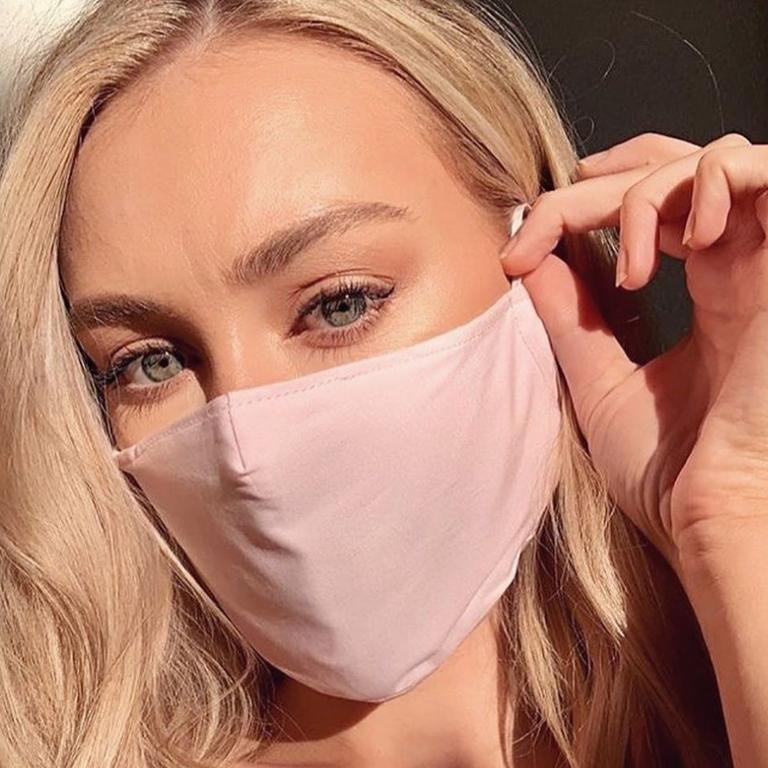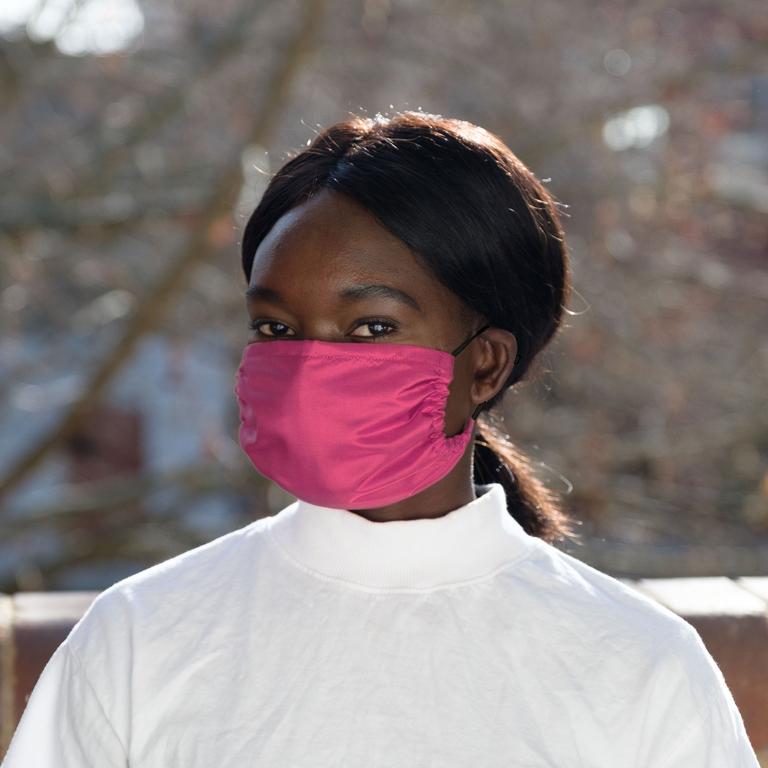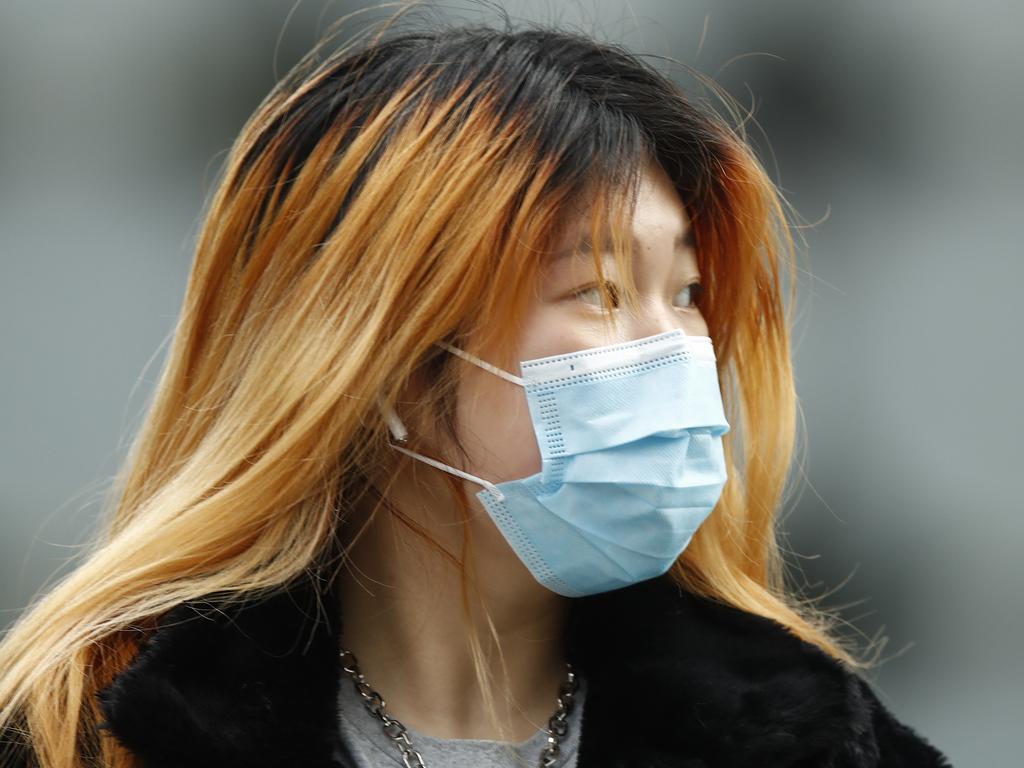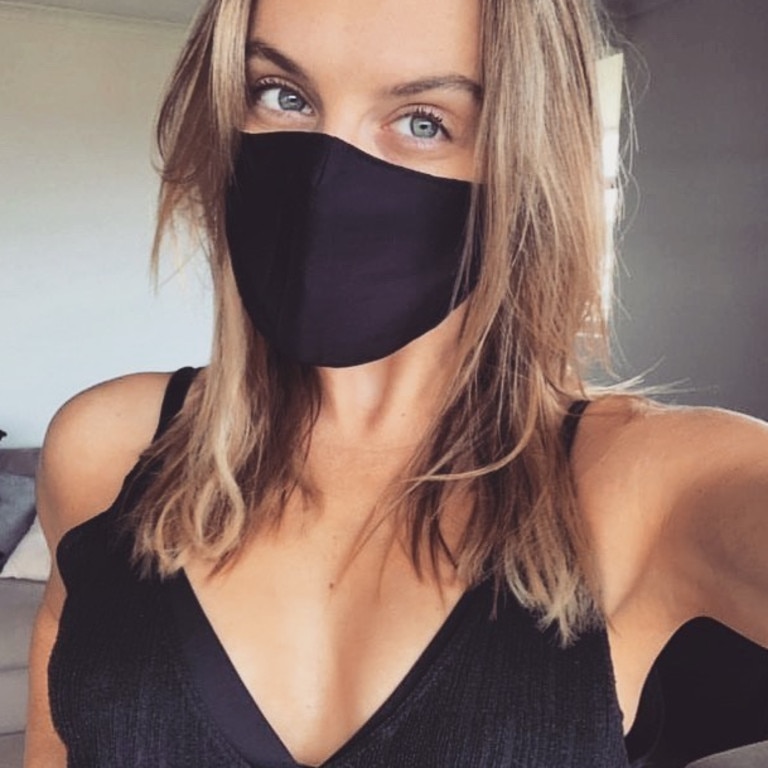Coronavirus Melbourne: Why cloth masks are best weapon against virus
Surgical face masks had been billed as the best way to stop coronavirus spread, but two new studies label cloth options our “best weapon”.
While surgical masks were once king, new evidence has shown cloth masks are just as effective at slowing the spread of coronavirus.
Experts had previously said surgical mask were the “best option”, but two new studies have provided evidence that universal facial coverings are an effective tool.
“Cloth face coverings are one of the most powerful weapons we have to slow and stop the spread of the virus — particularly when used universally within a community setting,” Dr. Robert Redfield, the director of the Centers for Disease Control and Prevention said.
Official advice from Australia’s chief medical officer Professor Paul Kelly is that wearing a face mask isn’t necessary.
But in the wake of Victoria’s recent virus surge, Prof Kelly said people living in Greater Melbourne who can’t remain socially distant when out and about for essential reasons should don a mask.
RELATED: Type of face mask you should avoid
RELATED: Reusable face masks you can buy online

Since that advice was shared a few days ago, Australian businesses who make reusable cloth masks have experienced a huge surge in sales, selling out of stock in minutes.
Clear Collective, a Sydney-based brand, has reported an 800 per cent increase of customer traffic to its site from Melbourne, revealing 90 per cent of those are from hotspot areas.
The brand, which was born in late 2019 in response to the bushfire crisis, said its masks have been “selling like hot cakes” and was struggling to keep up with demand.
“Our reusable handmade cotton masks are made with three layers, adjustable ear and nose straps and comfortable fabrics,” Harper Piers, the brands marketing manager, told news.com.au.
“While the majority of our customers in the last four weeks are from Melbourne, we have seen numerous purchases from other areas such as Byron Bay, Tasmania and Queensland.”
Ms Piers said every time stock is replenished, it sells out in minutes and currently there is a waitlist of over 1000 people in line to buy the next batch which are made in Sydney.
RELATED: The $12 mask every traveller should have

Victorian-based not-for-profit fashion label The Social Studio have also experienced the same frenzy for masks, earning $15,000 since the new lockdown began.
Aleksandra Nedeljkovic, The Social Studio’s chief operating officer, told news.com.au it launched its three-layer covering on Monday afternoon and sold out within 20 minutes.
“We are restocking daily and each time we restock, we sell out in around an hour,” adding in three days The Studio had sold approximately 1500 masks.
All income generated through The Studio is invested in creating social benefits for its students, staff and their communities and the masks are made at the organisation’s ECA accredited production studio in Collingwood Yards and meet Victoria’s Department of Health and Human Services standards.

The new studies show those who have purchased those masks, largely because stock of medical masks has been depleted, now have just as good an option for keeping safe.
Researchers at Massachusetts General Hospital in Boston monitored how wearing a mask affected transmission rates of SARS-CoV-2, the virus that causes COVID-19, among hospital health care workers.
The team tracked infection rates among staff before and after America’s mask mandate, discovering the positivity rate “increased exponentially” before masking.
“It’s almost a stress test of masking, and it showed that masking is effective in terms of reducing infection from COVID.” said Dr. Deepak Bhatt, professor at Harvard Medical School and lead author of the study said.
A second, separate study found that masks protected against the virus spread in a hair salon in Missouri where two infected hair stylists had continued working until they received positive test results.
Between the two stylists, 139 people had potentially been exposed, but because both the staff and clients wore face coverings, none contracted the virus CDC reported.

An Australian expert previously warned no type of face mask provides complete protection from infectious diseases.
“How well a mask filters out droplets from coughs and sneezes carrying the coronavirus depends on a variety of factors, including the nature of the mask itself and how it’s used,” epidemiologist Dr Abrar Ahmad Chughtai from UNSW said in a blog post on Monday.
He stated the best option for members of the public was a surgical mask as studies show they are effective at filtering particles from coughs and sneezes. They can be purchased from pharmacies or online.
“Put them on by holding by the ear loops and hooking over the ears,” Dr Chughtai said.
“Make sure you cover the nose, and pull them down under the chin. Pinch the bridge to ensure a good seal around the top of the nose.”
With cloth masks he said there were notable details to look for when purchasing.
“Use two or three layers of fabric. Choose fabric with a high thread count – so a tighter weave, for instance, from a good quality sheet is generally better than a fabric (mask) with a looser weave that you can clearly see light through.
“Fabrics made with more than one type of thread, for instance cotton – silk, cotton – chiffon, or cotton – flannel, may be good choices because they provide better filtration and are more comfortable to wear.”
To ensure it is effective make sure it fits properly and seals around the face well.
Continue the conversation @RebekahScanlan | rebekah.scanlan@news.com.au




